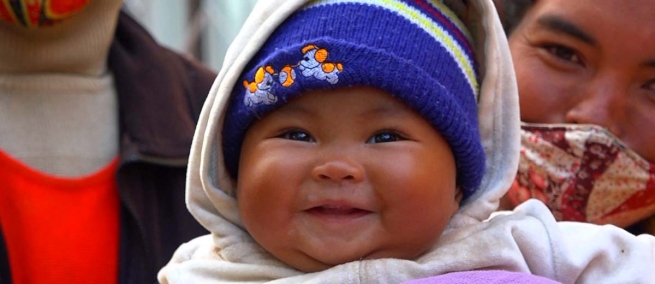MADAGASCAR: Salesian project is providing nutritional support for 500 people in Ivato impacted by coronavirus lockdowns

(MissionNewswire) Salesian missionaries with Don Bosco House in Ivato, Madagascar, are helping poor and disadvantaged families, supporting them with donations of food and medicines, and assisting them in building small houses. But it is still not enough, especially during the coronavirus pandemic.
The area has a population of about 28,000 people. There are families who live making ends meet with small jobs including laundry on behalf of wealthy families, car washing, and loading and unloading of goods at the market. Many of these families have fallen further into poverty during the lockdown period. While they have received a little help from the government, restrictions have taken away their ability to earn a living.
The Salesian Mission Office in Turin, Italy, has offered support to the local Salesians and has provided the funding for the distribution of rice, beans, soap and oil twice a week. The aim is to guarantee the minimum necessary for families facing difficulties. Many of these families are single mothers with children who live in shelters and other dilapidated housing. The project has helped 70 families and a foster family home with around 25 children. About 500 people are receiving concrete help from this project.
“The coronavirus pandemic has not only been a risk to people’s health, but the resulting lockdowns have put strain on people’s livelihoods,” says Father Gus Baek, director of Salesian Missions, the U.S. development arm of the Salesians of Don Bosco. “Salesians in Madagascar and around the globe are providing nutritional and health support to help people through this challenging time.”
Madagascar, an island in the Indian Ocean off the coast of East Africa, is one of the poorest countries in the world. Seventy percent of Madagascar’s almost 19 million people live in poverty with 5.7 million of those being youth between the ages of 10 and 24, according to UNICEF. This number is expected to double by 2025. Women and children in the country are particularly vulnerable to the effects of poverty.
For close to 80 percent of the country’s inhabitants who live in rural areas and practice subsistence farming, living conditions have been steadily declining in recent years, particularly when it comes to access to transportation, health services, education and markets. Because of the lack of hygiene and access to safe drinking water, coupled with chronic malnutrition, people in Madagascar often suffer from respiratory ailments, tuberculosis and hepatitis.
In order to help youth break the cycle of poverty and hopelessness, Salesian missionaries in Madagascar operate elementary, middle and high schools throughout the country. The focus of the schools is on providing educational opportunities, increasing literacy and laying a foundation for education well past the compulsory education in the country. Access to education and training in social and life skills encourages graduates to find livable wage employment, breaking the cycle of poverty.
###
Sources:
ANS Photo (usage permissions and guidelines must be requested from ANS)
ANS – Madagascar – Amid pandemic and hunger, the answer is in solidarity
UNICEF – Madagascar





